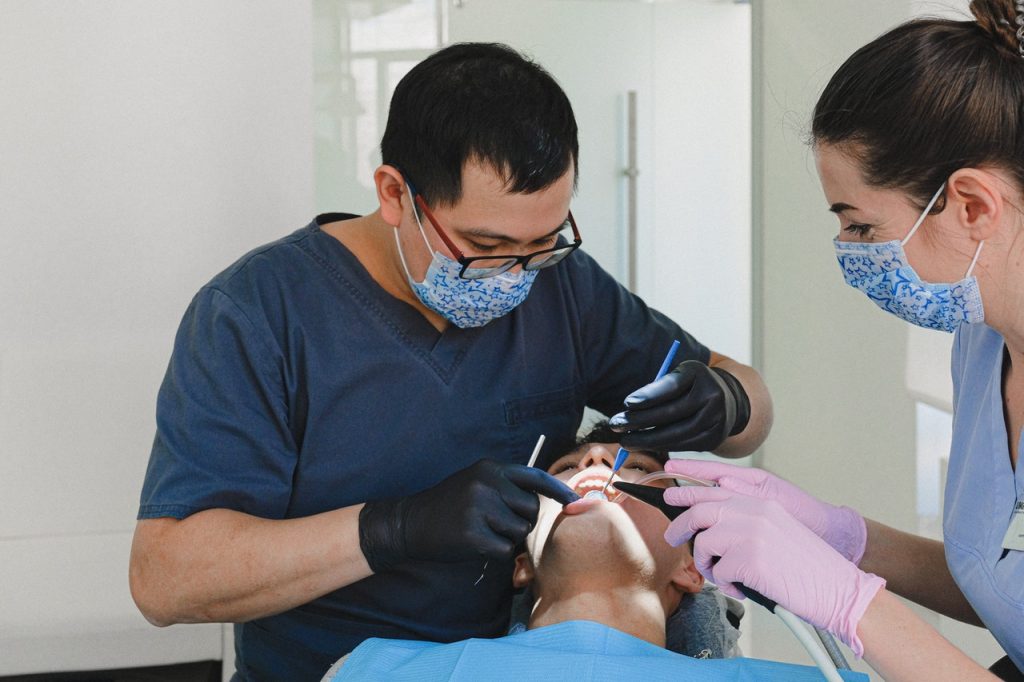
Dental malpractice occurs just as often as medical malpractice. In most cases, when a dentist makes a mistake, it is a minor problem that can be easily corrected. However, there are situations where a dentist may make an error that does not follow the standard of care expected. When that happens, you may be the victim of dental malpractice.
Although there are many forms of dental malpractice, these are the most common. If you have been the victim of any of these, you may have a malpractice claim.
Table of Contents
1. Failure to Diagnose Oral Disease

Source: pexels.com
Your dentist and hygienist are trained to recognize the signs of oral diseases, including cancer. Even a disease that begins as a minor problem, such as gingivitis, can become serious in a short time. Gingivitis, for example, can develop into periodontal disease, which affects the soft tissues that keep your teeth in place. It can be extremely painful, and there is no cure.
There are methods that can stabilize periodontal disease if it is caught early. If your gingivitis progressed to periodontal disease because your dentist failed to recognize it, you may be the victim of dental malpractice.
2. Failure to Follow Standard Procedure
You may not have realized that your dentist was not following a standard procedure when they worked on your teeth until you begin having problems. Dentists are legally and ethically bound to follow certain procedures. At all times, they must ask themselves if the procedure is in the best interest of that particular patient.
If they determine a procedure is not in a patient’s best interest, they should act as any other reasonable dentist and not perform the procedure. If they do so and you develop problems, you may have a claim for dental malpractice.
3. Failure to Obtain Medical History

Source: pexels.com
Many people are unaware how much of a connection our teeth have to the rest of our body. The more a dentist knows about your medical history, the better they will be to recognize problems, diagnose illnesses and keep you as healthy as possible. Some of the medical history your dentist needs to provide you with adequate care include:
- Allergies
- Asthma
- Autoimmune conditions
- Epilepsy
- Heart problems
- Joint replacements
- Pacemaker
- Smoking
If your dentist fails to get a full medical history, they may prescribe medications that could worsen a condition. Or they could perform a procedure that is dangerous for you based on your history.
4. Infections
After some procedures, infections are not uncommon. Some are due to your errors, such as eating too soon after wisdom tooth extraction. However, if your dentist makes a mistake that leads to an infection, you may have a dental malpractice claim.
Infections in the teeth and gums can be dangerous as it is possible for the infection to enter the bloodstream where it can damage the heart, lungs or other organs. This could lead to hospitalization, incision, drainage, and other painful treatments in order to address the infection.
5. Nerve Injuries

Source: dentaltriage.co.uk
Approximately 10 percent of dental malpractice lawsuits are related to nerve injuries. Most nerve injuries in dental practices involve either the inferior alveolar or the lingual nerve. The inferior alveolar is the sensory nerve that carries sensation to the brain, while the lingual nerve supplies sensation to the tongue.
Injuries can occur during tooth extraction, dental implant surgery, or repairs to a fractured jaw. In some cases, sensation may return over time but in others, the damage is permanent.
6. No Assistant Nearby
Many dental procedures are complicated and difficult for a dentist to perform alone. If your dentist performs a procedure without an assistant nearby and complications arise, you may have a claim for dental malpractice.
An assistant is able to hand the dentist utensils they need to perform a procedure without requiring them to reach or stretch. Dental assistants may also be able to assist should the procedure have a complication that requires more than two hands. Any dentist who performs procedures in your mouth should have an assistant close by.
7. No Warning of Possible Anesthesia Complications

Source: bestmonumentdentist.com
As with any surgery or medical procedure that requires anesthesia, your dentist is required to tell you of any possible side effects. In most cases, you are handed a written document with all possible side effects listed that the dentist would require you to sign.
If your dentist did not provide you with information on what complications could occur while you are under anesthesia or as you are waking up, you may have a dental malpractice claim.
8. Rushes Through Examination
When you are visiting a dentist, you want them to do a thorough examination and talk to you about any issues they discover. If your dentist spends just a few minutes looking into your mouth and then disappears, never to be seen again, they have rushed through your examination. If you are later diagnosed with an oral disease that this dentist missed, you may have a claim for dental malpractice.
9. Use of Expired Medications

Source: pexels.com
Dental offices are required to dispose of expired medications regularly. They must inspect any vials or bottles in their office and, if the medication has expired, it must be discarded properly. Expired medication may have lost its potency, although there are some that actually grow stronger as they get older.
If your dentist does not have a standard practice for discarding expired medications and a drug they give you causes a reaction, you may have a dental malpractice claim.
10. Use of Unsterilized Equipment
Most of us just assume that our dentist is using equipment that has been properly sterilized. However, there are some dental offices that skip some of the steps necessary to be sure equipment is properly cleaned. Most dental tools are wrapped in plastic and should be sealed so that the dentist or hygienist must open it to use it.
Most dentists use a machine known as an autoclave to sterilize their equipment and you can ask to see it if you are concerned about how clean the instruments are in your dental office. If the dentist does not follow standard sterilization procedures, you may have a dental malpractice claim.
According to pintas.com, when the four elements of a negligence lawsuit are satisfied, a successful dental malpractice lawsuit is possible, but the amount of damages you may be able to recover will be limited to the practice’s assets.







